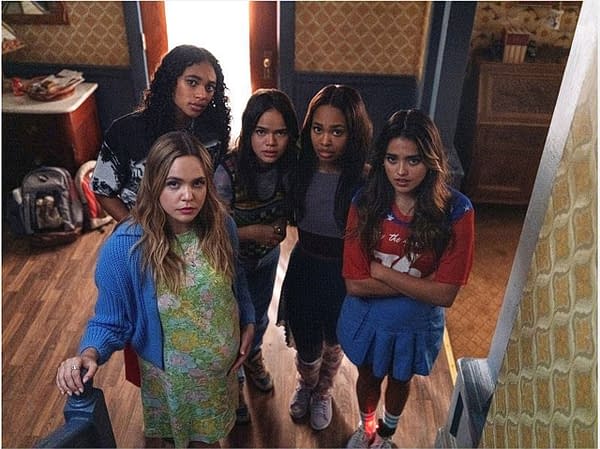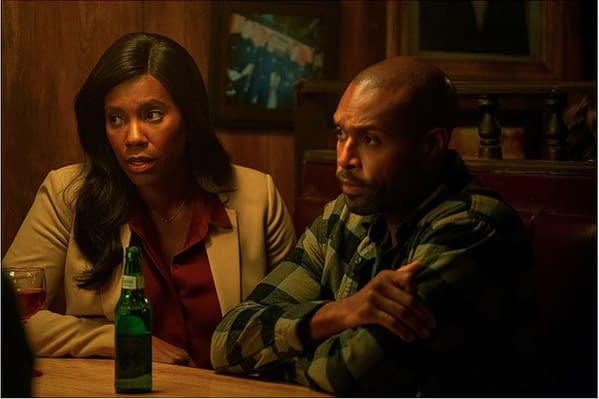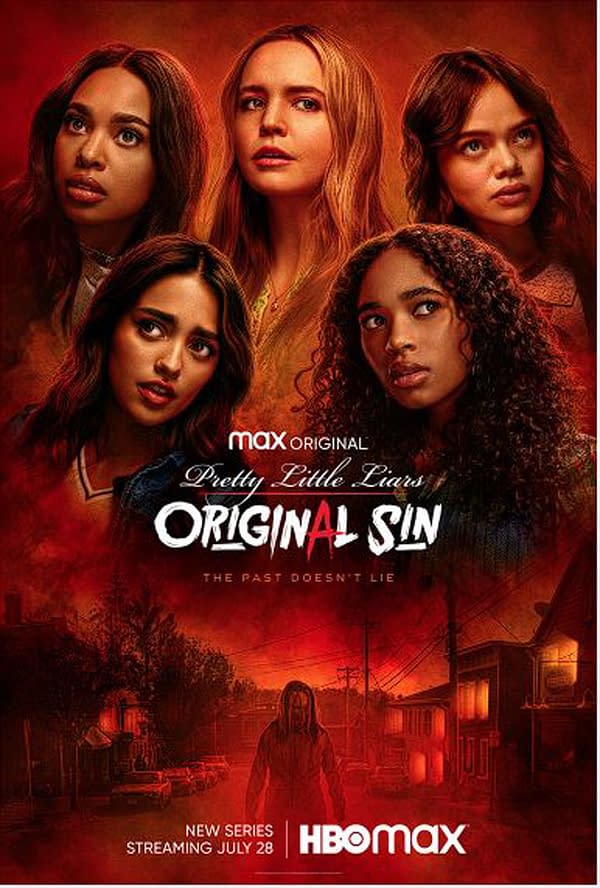Pretty Little Liars Cinematographer Discusses
|
Anka Malatynska is quite familiar with the young adult horror genre, having come off of the Amazon Prime Video adaptation of I Know What You Did Last Summer. When the producers came calling for her to work on Roberto Aguirre-Sacasa’s spinoff Pretty Little Liars: Original Sin for HBO Max, she knew she would fit right in. Unrelated to the original series set in Millwood, Original Sin takes place in modern times with a new generation of Little Liars finding themselves tormented by an unknown assailant. Malatynska spoke to Bleeding Cool about jumping on the series in the middle of production.

Bleeding Cool: How did you get involved with Pretty Little Liars: Original Sin?
Anka Malatynska: [Production] shot their first two episodes and then reviewed the work, and their original cinematographer didn’t continue. So my agent got the call, and they were looking for somebody who had shot YA horror before. I wrapped ‘IKWYDLS’, which came out a couple of months prior, and that’s what really started the conversation. We knew we were going to work together, and it was the right match. It was an easy interview process. I really love the showrunners right away and had a great connection with them and the entire producing team.
BC: Did you have a foundation to work off with the series, or were you asked to work from scratch?
Malatynska: The dailies and stills I got to see of the show prior to signing on to the project were one of the tipping points for me. What they were doing was really unique, really dark, edgy, and beautiful. Their original cinematographer, Joe Collins, and the pilot director, Lisa [Soper], really established a unique look. After you take over a series from a pilot, yes, the look does evolve. Our job is also to honor that look and continue that and build on what was built up from what was put together in the pilot.

BC: What were the biggest challenges?
Malatynska: One of the bigger challenges of the series is these are finicky scripts. They were 50-56 page scripts that had up to 75, sometimes 80 scenes. That’s an incredible amount of work and with the process of the show finding itself and a lot of material that ends up on the editing room floor. There were the first cuts of episodes were sometimes 70-80 minutes long. We’re shooting for an hour and felt like a little feature every time we’re shooting an episode.
These are very visually written scripts. Sometimes it’s those scripts that in an eighth of the page where it says “Atlanta’s burning.” It’s not like you’re just going to have a wide shot of Atlanta burning. You’re going to spend three weeks shooting Atlanta burning, which is that classic example. So these scripts were full of instances like that. “Oh, look! The scene is only a quarter on the page, but there are five story beats that happen silently between two characters, and we still have to photograph all of those stories.”
BC: How do you contrast your work in ‘IKWYDLS’ & ‘Pretty Little Liars: Original Sin?’
Malatynska: Every show I ever worked on is its own animal. Every showrunner and team has a bit of a different way of working. It’s always about walking into a unique world and learning how this scheme works. The big difference is that in “IKWYDLS” had a lot of very long scenes. We had some scenes that were five-eight minutes long, five-eight pages long, whereas [Pretty Little Liars], a scene that was nine pages long, would get cut into four scenes coming in and out of that story during the episode. That itself makes the shooting different because it’s the continuation of the same story points you may not want to reenter the scene and continue shooting it the same way. The scripts are so texturized… thick in story and events in the visual texture of the story. These were very challenging scripts to shoot from the perspective of being the only cinematographer because it’s an immense amount of work. Even if we’re taking ten days to shoot 77 scenes, that’s still an average of 7.7 scenes a day.

BC: Can you break down how scenes go from conceptualization, storyboarding, and blocking to filming?
Malatynska: It depends on what kind of scene, and I’ll use an example of what we had in every single one of our episodes was like a “horror set piece.” Whether it was usually like some sort of horror, creepy chase scene with our Creeper A, who’s chasing down our girls… those scenes were shot for impact, suspense, action, and stunts. We always did a previsualization (previz) of those scenes. Our stunt coordinator would go out with her team, and they would shoot a previz, and then we would kind of adapt to the previz and say, “Hey, this moment worked really well. Let’s definitely repeat this shot.”
Oftentimes, my job would then be to reverse edit, break it out of the edit, and into camera setups I can pick up many of these shots rather than shooting for an edit the way you like. It’s more of a student film thing where you can set your cameras to shoot for an edit. When we’re shooting narrative stories, it’s great to actually have that overlap between shots where you’re not shooting necessarily straight for the edit, but you’re deconstructing the edit backward. You’re also making sure that the camera setups actually give you a little bit more than what you would anticipate with a storyboard.
Pretty Little Liars: Original Sin, which stars Malia Pyles, Maia Reficco, Zaria, Mallory Bechtel, Carson Rowland, Bailee Madison, Chandler Kinney, Jonathan Wieber, Catherine Gambeski, and Nicholas Byrne, premieres July 28 on HBO Max.
For all the latest Comics News Click Here
For the latest news and updates, follow us on Google News.

